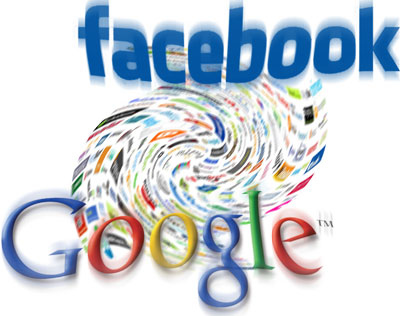When we figured out that we could allow true 2-way communication through the internet with Web 2.0 tech, everyone and their kid brother rushed to install comment forms, profiles, wikis, twitter, social bookmarking, social networking, and so forth on their own sites. Turns out this was a good first step, but not such a great idea in the long run.
The problem with social networking spread out to the masses was that there were too many unsustainable, social networks created.
Put simply: no one wants to fill out a registration form. And, yes, it's more than just the hassle involved. Another registration form means another identity online. Another profile to update, another community to participate in.
Comments, for example
If you come across my blog, chances are not good that you'll want to register to become a user on my site in order to comment. That's why I've installed Disqus, a larger social network that allows you to sign in there, and then post a comment on any blog that has the plugin installed.
Some blogs have gotten around this registration problem by allowing you to just enter your name and email. While this does avoid the registration problem, it fails in creating a real social network. When you post your comment, you don't get credit. There's no, one place, where people can see all of your entries — across the web. If a blog owner wants to get a sense of what kind of commentator you are before approving your comment in moderation, there's no current way to do that.
Macro
Generally speaking, people do things because they expect to see some benefit. For intellectual property, the minimum benefit expected is usually credit for the work.
Wikipedia is proof that in a larger community, people become willing to forego their credit for the benefit of the public good. Most of the changes made to wikipedia are small, performed by people who don't really expect to get noticed for their contribution. Presumably, these changes are written off by the contributor as a benefit for the greater whole.
But shrink the network, and you'll find that the wiki concept doesn't work so well. Self-hosted wikis are frequently maintained by just one person. Having personally been involved in starting wikis for groups from just two all the way up to several thousand people, I can tell you, it's a nearly impossible task. There are several factors involved with the failure of wikis on the small scale.
- In a network that is small enough for everyone to know each other personally, there's often a fear that changing a wiki article will anger the original author. This is a barrier for participate. Since wikis depend on mass participation to work, it's a failure of the wiki.
- Despite what the linux geeks tell you, wikis aren't intuitive. The wiki markup language is easy, but it's not something that most people know. It's yet another barrier to participation. Further, most people don't want to participate in editing a wiki. The vast majority just want to read the information and move on. Even Wikipedia has the problem.
- Editing a wiki just doesn't have the same satisfaction as hitting the publish button. Writing on your own blog, or digging an article, or any participation on a larger social network gives you credit; you can become a part of a community. Self-hosted wikis just don't offer that level of participation.
A while ago Paul Boutin posted that blogs were so 2004. He was wrong, blogs aren't dead, but the effectiveness of small blogs, outside of a platform is virtually nil. A successful blog nowadays is started by someone who already has a following (Vincent LaForte or Joe McNally) or are part of a larger blog network (HuffPo or Daily Kos). But even these examples will never have the reach of Google or Facebook.
F* Connect
With the announcement of Google's Friend Connect and Facebook's Facebook Connect last week, the Web 2.0 has finally seen true convergence.
Though both services provide the same type of universal login service as OpenID, there is a distinct difference — Google and Facebook have a huge community behind them. Facebook's service, especially, allows smaller websites to tap into a huge social network.
The benefit to contributors is credit. Gone are the days where your intensely written, well-worded, reply to a blog post will go unnoticed by your peers. It can now popup in your Facebook profile. That gives incentive for contributing to a wiki article, blog network, forum discussion, etc. All of this content can get linked back to one profile.
That profile has power too. It's now easy enough to click on a contributor's picture and get linked back to their main profile. Figuring out who someone is, and what their qualifications are, is simple.
Oh yea, and you're not going to have to remember an endless string of usernames. Better yet, you no longer have have to register on every website you want to contribute to. A Facebook account is all that you need. Websites should see the number of people who participate go up for this reason along.
Newsmixer is a great example how Facebook Connect makes site login stupid-easy. (They also do commenting in a really, really cool way.)
And you're small blog (like this one), with a limited following should see it's relevance increase. (Assuming you're publishing good content of course!)
Here's to social networks powering the Web 2.0 convergence (and making life simpler at the same time!
Sidenote: Disqus, has announced that they will be utilizing Facebook Connect before the end of the year. I've gone ahead and set it up, so it'll be here as soon as they role it out.
